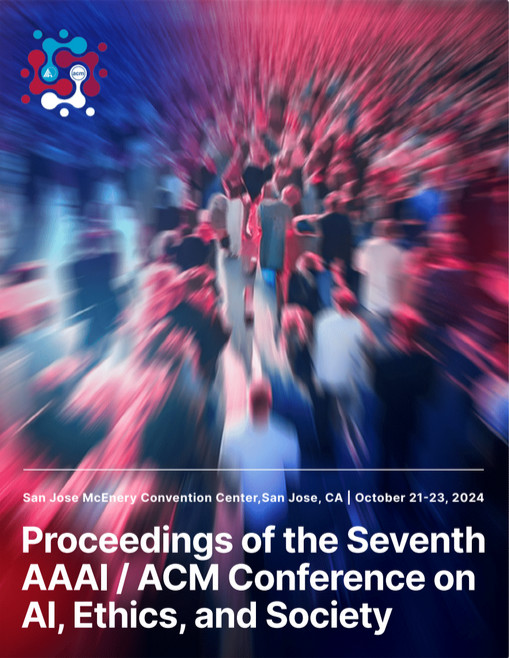Surveys Considered Harmful? Reflecting on the Use of Surveys in AI Research, Development, and Governance
DOI:
https://doi.org/10.1609/aies.v7i1.31734Abstract
Calls for engagement with the public in Artificial Intelligence (AI) research, development, and governance are increasing, leading to the use of surveys to capture people's values, perceptions, and experiences related to AI. In this paper, we critically examine the state of human participant surveys associated with these topics. Through both a reflexive analysis of a survey pilot spanning six countries and a systematic literature review of 44 papers featuring public surveys related to AI, we explore prominent perspectives and methodological nuances associated with surveys to date. We find that public surveys on AI topics are vulnerable to specific Western knowledge, values, and assumptions in their design, including in their positioning of ethical concepts and societal values, lack sufficient critical discourse surrounding deployment strategies, and demonstrate inconsistent forms of transparency in their reporting. Based on our findings, we distill provocations and heuristic questions for our community, to recognize the limitations of surveys for meeting the goals of engagement, and to cultivate shared principles to design, deploy, and interpret surveys cautiously and responsibly.Downloads
Published
2024-10-16
How to Cite
Tahaei, M., Wilkinson, D., Frik, A., Muller, M., Abu-Salma, R., & Wilcox, L. (2024). Surveys Considered Harmful? Reflecting on the Use of Surveys in AI Research, Development, and Governance. Proceedings of the AAAI/ACM Conference on AI, Ethics, and Society, 7(1), 1416-1433. https://doi.org/10.1609/aies.v7i1.31734
Issue
Section
Full Archival Papers

